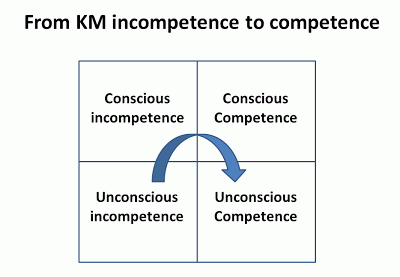Don't use Facebook (Part II) - because of privacy issues?
Privacy concerns have accompanied Facebook since its launch in 2004, mostly for legitimate reasons. Undoubtedly everyone has a right and - to variing degrees - a need to privacy and any service provider who ingnores these rights and needs should seriously reconsider his strategy.
However, I would like to shed a different light onto the scenario. Especially in the German media, more and more articles voice a very critical view on social networking in general. Like e.g. my favourite online journal SPIEGEL ONLINE, which has continuously publishes solely critical articles against Facebook & Co (http://www.spiegel.de/netzwelt/web/0,1518,531000,00.html or http://www.spiegel.de/unispiegel/wunderbar/0,1518,532070,00.html). The critical voices all go into similar directions:
1. Transparency is good. It's a sociological rule that the more people know of each other, the more there will be a chance for understanding, respect and peace. Why should I share a lot about myself with a lot of people? Because if everone does, no one would have to hide anything anymore. Ok, that's pretty idealistic, but it shows the point. It's fear of comparison, of rejection, of loosing one's image and status, of loosing love, that keep us from sharing what we think and who we are. And it's this fear that bears greed, rejection and violence. But if everyone shares and receives respect for what he shares, there's no need for fear anymore. That's how every community, every friendship and partnership works. They work because transparency bears trust.
2. Relationship is good. Never has the internet come so close to what the essence of the human being is all about: relationships, which is the whole idea of social online networks. Now of course you can argue that you can have this essence also without Facebook & Co. True. But the thing is that social online networks offer additional opportunities for maintaining, building and creating relationships, especially with people hundreds of kilometers away, which you would otherwise soon loose track of or which you would even never know. Here is a tremendous added value. I have just lately reconnected though Facebook with a dear old friend, which I had lost sight of some 7 years ago. Today we're on the phone again, and that's just great. Thank God for the 'Poke' feature!
Now, I agree there are real issues. One issue is the controvery about private data of e.g. Facebook possibly being sold to third parties for advertisment - or even worse - national intelligence purposes. This needs to be addressed and policy makers need to make sure that there is transparency (ah, yes!) regarding what exactly happens with my data. Users need to be in control about the information they give to service providers, there is no doubt about that!
The bottom line is: Are we always just able to either hype something into the sky or bash it into the ground? Potential and danger are always going hand in hand, and we shouldn't deny our responsability to find a thoughtful way through the unknown, so that we can harvest the most benefit possible (the potential of social change in a interconnected world) without risking everything (our freedom and our integrity).
However, I would like to shed a different light onto the scenario. Especially in the German media, more and more articles voice a very critical view on social networking in general. Like e.g. my favourite online journal SPIEGEL ONLINE, which has continuously publishes solely critical articles against Facebook & Co (http://www.spiegel.de/netzwelt/web/0,1518,531000,00.html or http://www.spiegel.de/unispiegel/wunderbar/0,1518,532070,00.html). The critical voices all go into similar directions:
- If you use social networking sites, publish rather less about yourself
- Why should anyone connect to so many people online?
- Why should anyone just tell stuff about himself?
- It's better not to use social networking sites at all
1. Transparency is good. It's a sociological rule that the more people know of each other, the more there will be a chance for understanding, respect and peace. Why should I share a lot about myself with a lot of people? Because if everone does, no one would have to hide anything anymore. Ok, that's pretty idealistic, but it shows the point. It's fear of comparison, of rejection, of loosing one's image and status, of loosing love, that keep us from sharing what we think and who we are. And it's this fear that bears greed, rejection and violence. But if everyone shares and receives respect for what he shares, there's no need for fear anymore. That's how every community, every friendship and partnership works. They work because transparency bears trust.
2. Relationship is good. Never has the internet come so close to what the essence of the human being is all about: relationships, which is the whole idea of social online networks. Now of course you can argue that you can have this essence also without Facebook & Co. True. But the thing is that social online networks offer additional opportunities for maintaining, building and creating relationships, especially with people hundreds of kilometers away, which you would otherwise soon loose track of or which you would even never know. Here is a tremendous added value. I have just lately reconnected though Facebook with a dear old friend, which I had lost sight of some 7 years ago. Today we're on the phone again, and that's just great. Thank God for the 'Poke' feature!
Now, I agree there are real issues. One issue is the controvery about private data of e.g. Facebook possibly being sold to third parties for advertisment - or even worse - national intelligence purposes. This needs to be addressed and policy makers need to make sure that there is transparency (ah, yes!) regarding what exactly happens with my data. Users need to be in control about the information they give to service providers, there is no doubt about that!
Despite these clear issues however, I would encourage all of us to be a little more open and adventurous. Of course we might step into some pit here and there, but only by playing and trying out will we advance. Nothing good ever emerged from remaining on the spot:
- Just a few years ago, people were critisizing blogs in exactly the same way. "Why should I bother? Those people who shout their opinion which nobody cares about out into the world, are just crazy...". Today I wouldn't even reflect with you on this issue if it was not for this blog.
- 15 years ago, people thought emails were just for tekkies and nerds who don't have real relationships. Today, 1 out of 8 couples that marry in the U.S. have met online.
- Around 1950, the Cambridge mathematician Prof. Douglas Hartree, predicted that no one would ever need computers of their own, nor would anyone be able to afford to buy them. Well, we all know how this story went.
The bottom line is: Are we always just able to either hype something into the sky or bash it into the ground? Potential and danger are always going hand in hand, and we shouldn't deny our responsability to find a thoughtful way through the unknown, so that we can harvest the most benefit possible (the potential of social change in a interconnected world) without risking everything (our freedom and our integrity).



Comments